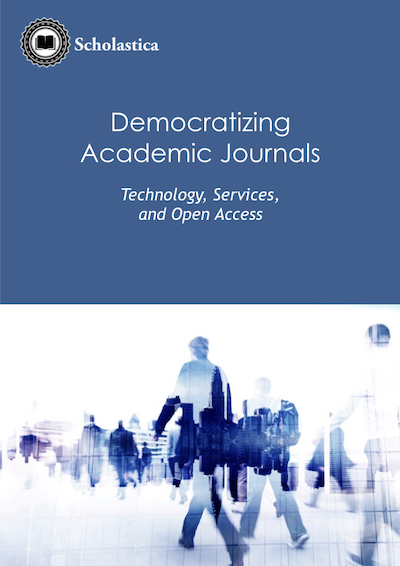A 21st Century Solution to the Serials Crisis: White paper
How centralization of academic journals led to the serials crisis and why democratizing digital journal publishing using services is the key to fixing it

About the White Paper
As the cost of academic journals continues to rise, institutions and individual scholars are increasingly at risk of losing access to leading research. Time is running out to break this dangerous cycle. This white paper brings together key literature and insights from 5 expert open access (OA) advocates to survey the journal publishing landscape and explore ways research can affordably be made OA. The paper argues the keys to an OA future are: decentralization of the journal market, online-only publishing, and democratization of article production via services.
The paper overviews:
- The past and present state of journal publishing
- Current alternatives to the corporate publisher model
- Steps to realize sustainable, open access-friendly journal models

"We must remember that OA is an outcome for a research object, and not a business model (and therefore can be supported by any appropriate model). And, we need to move to business models by design, and not by necessity."
We gratefully acknowledge the following white paper contributions:
- Björn Brembs, Professor of Neurogenetics at the University of Regensburg and OA advocate
- Dan Morgan, Director of Community Relations at PLOS
- Roxanne Missingham, Chief Scholarly Information Officer at Australian National University and Australian OA Support Group Deputy Chair
- Stevan Harnad, Professor in the Department of Psychology at Université du Québec à Montréal, Green OA advocate
- Ulrich Herb, OA expert at Saarland University and State Library